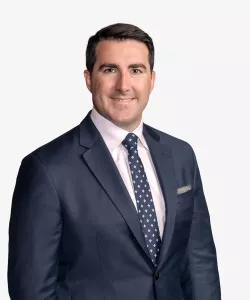Medical Supplier Agrees to Pay $29 Million for FCA Violations
Headlines that Matter for Companies and Executives in Regulated Industries
Medical Supplier Agrees to Pay $29 Million for FCA Violations
Earlier this month, the US Department of Justice (DOJ) and medical supplier Lincare Holdings Inc. reached an agreement to settle claims that Lincare violated the False Claims Act (FCA) by overcharging Medicare for oxygen tanks.
Lincare is a durable medical equipment (DME) company headquartered in Florida, which provides in-home respiratory care to patients through hundreds of centers throughout the country. Medicare reimbursement for the equipment rented by DME suppliers is limited to three years of continuous use. Following those three years, DME suppliers are required to continue to lease the equipment to the beneficiary for the remainder of its useful life (five years) but are not eligible for reimbursement from Medicare for any further lease payments during that time. After five years, DME suppliers are permitted to replace the equipment and resume billing for another 36 months of payments.
Two former Lincare employees filed a qui tam complaint alleging that Lincare had violated the FCA by improperly billing Medicare for oxygen tanks after the first 36 months. As part of the settlement agreement, Lincare admitted that it improperly billed Medicare, Medicare Advantage Plans, and beneficiaries for this equipment; did not have effective controls to ensure that Medicare was not improperly billed; and failed to address employee concerns about billing practices. Of the $29 million settlement amount, almost $12.6 million is slated for restitution, over $5.655 million will be paid to the relators, and $362,000 will cover the relators’ fees, costs, and expenses.
Additionally, Lincare has entered into a five-year Corporate Integrity Agreement (CIA) with the Office of Inspector General (OIG) for the US Department of Health and Human Services (HHS), under which Lincare is required – among other things – to implement a robust compliance and reporting program, as well as significant billing reforms and practices. The CIA additionally requires that Lincare retain, at its expense, independent experts to review its claims and billing practices.
DOJ’s press release is available here, the settlement agreement is available here, and the CIA is available here.
Court of Appeals Reinforces Holistic Review of Materiality Under Escobar
On August 25, 2023, the Third Circuit Court of Appeals sided with whistleblowers in ruling that the District Court incorrectly assigned dispositive weight to a single Escobar factor when awarding summary judgment to the defendant. United States v. Care Alternatives, No. 22-1035, 2023 WL 5494333 (3d Cir. Aug. 25, 2023).
The case stems from a whistleblower action dating back to 2008, in which employees of Care Alternatives, a hospice provider, alleged that their employer improperly billed Medicare for hospice care provided to patients whose physician certifications of eligibility lacked sufficient clinical documentation. Id. at *3.
“To prevail on a False Claims Act (FCA) claim, the relator must prove that the defendant (1) made a false statement, (2) with scienter, (3) that was material, (4) causing the government to make a payment.” Id. at *2 (citing Universal Health Servs., Inc. v. United States ex rel. Escobar, 579 U.S. 176, 181-82 (2016)). Whether the false statement was “material” requires consideration of several factors, including “(1) whether the government has expressly designated the legal requirement at issue as a ‘condition of payment’; (2) whether the alleged violation is ‘minor or insubstantial’ or instead goes to the ‘essence of the bargain’ between the contractor and the government; and (3) whether the government made continued payments, or does so in the ‘mine run of cases’ despite ‘actual knowledge’ of the violation.” Id. (quoting Escobar, 579 U.S. at 193 n.5).
The District Court had granted summary judgment to the defendant on the sole ground that “the government continually reimbursed Care Alternatives despite knowledge of the inadequacies in its documentation,” and thus, as a matter of law, any false claim was not “material” to the government’s decision to pay. Id. at *8. The Court of Appeals reversed, holding that (i) clinical documentation was an express condition of payment that a jury should have been permitted to consider; (ii) false certifications are not “minor or insubstantial” violations; and (iii) the government did not necessarily have the “actual knowledge” the District Court imputed to it. Id. at *4-9. The Court of Appeals further held that the lower court erred in assigning dispositive weight to a single materiality factor — here, the “government action” factor — when consideration of other factors could have weighed in favor of materiality. Id. at *10.
Last Friday’s ruling marks the second time that this Circuit has remanded the matter back to the District Court for further proceedings. In 2020, the Court of Appeals rejected the District Court’s requirement that the relators provide evidence of “an objective falsehood” to prove FCA falsity.
It remains to be seen whether this matter will resolve at the District Court, or whether another appeal lies ahead.
The Third Circuit Court of Appeals opinion is available here.
Judge Certifies Case Against Former Georgia Insurance Commissioner for Trial
On August 28, 2023, a federal magistrate judge found that former Georgia Insurance Commissioner John Oxendine is ready for trial.
The case against Oxendine stems from allegations that he engaged in health care fraud and money laundering. Per the superseding indictment, physicians associated with the ear, nose, and throat (ENT) practice of Dr. Jeffrey Gallups were pressured to order medically unnecessary tests from an unnamed laboratory in Texas. As part of the scheme, the laboratory, Oxendine, and Dr. Gallups allegedly entered into an agreement under which the latter received a kickback of 50% of the net profit for eligible specimens submitted by his practice to the laboratory. The laboratory allegedly paid such kickbacks through Oxendine, who retained a portion of the kickbacks for himself and used another portion to pay debts owed to Dr. Gallups.
In her report and recommendation, the magistrate judge recommended that the District Court deny Oxendine’s motion to dismiss the superseding indictment, motion to dismiss count two as time barred (conspiracy to commit money laundering), and motion to suppress. The magistrate judge further denied Oxendine’s motion for a bill of particulars.
In addressing the motions to dismiss, motion to suppress, and motion for a bill of particulars, the magistrate judge noted: the allegations in the indictment sufficiently informed Oxendine of the nature of the facts and circumstances giving rise to the pending charges and put him on notice regarding the conduct the government deemed to be unlawful; a conspiracy is deemed to have continued as long as the purposes of the conspiracy have neither been abandoned nor accomplished and the defendant has not made an affirmative showing that the alleged conspiracy has terminated; it seemed highly unlikely Oxendine would feel coerced in answering agents’ questions as he stood unrestrained on the steps of his own home in public view of passersby; and, because the government already provided thousands of pages of discovery regarding Oxendine’s alleged role, he failed to establish that a bill of particulars was required to allow him to prepare his defense, minimize the risk of prejudicial surprise, or prevent him from pleading double jeopardy in the future.
Finally, the magistrate judge recommended that Oxendine’s motion to strike surplusage be denied. In this case, Oxendine sought to have the term “kickbacks” struck from the superseding indictment under the argument that it was irrelevant, prejudicial, and inflammatory. The magistrate judge referred to Black’s Law Dictionary and concluded that the definition of “kickback” accurately encapsulated the scheme described in the superseding indictment. Furthermore, the magistrate judge found that the term “kickbacks” was not unduly prejudicial, but simply described the types of financial transactions that allegedly occurred in furtherance of the conspiracy.
Noting that all referred pretrial matters had been addressed, the magistrate judge ruled that the case was certified ready for trial. The trial date has not yet scheduled.
The magistrate judge’s Report and Recommendation can be found here.
Contacts
- Related Practices





